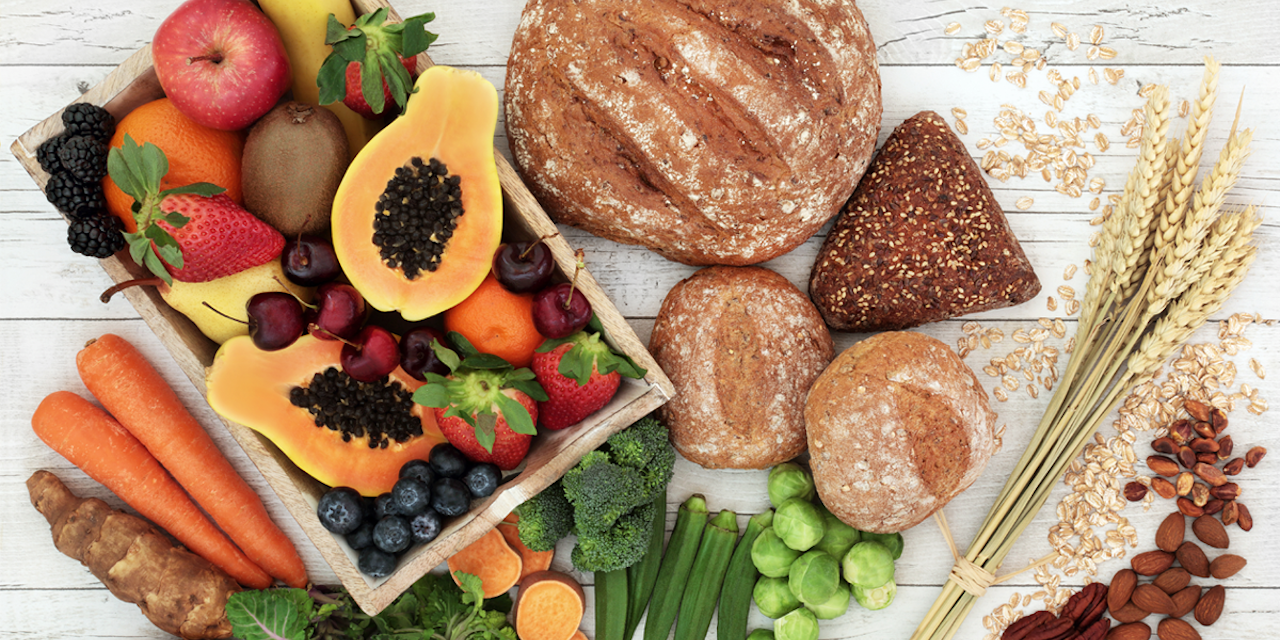Carbohydrates - Why Are They so Great?
Carbohydrates have being promoted as culprits for weight gain. We'll take a look at why we need crabs and which types are best for our bodies.
- Published: 3/21/2022
- Categories:
- 4 min. read

- Published: 3/21/2022
- Categories:
- 4 min. read
Carbohydrates have gotten bad PR lately, being promoted as culprits for weight gain. But they aren't all bad. In fact, they're simply doing their job of providing our bodies with the energy and nutrition we need. So why do carbs get such a bad rap? We'll take a look at why we need crabs and which types are best for our bodies.
Breaking the bad rap
One reason carbohydrates are losing the popularity contest lately is due to the very low-carb diet trend. When it comes to overall health and weight management, it's both the type of carb and the amount that matters. For instance, when we have too many of the more simple carbohydrates regularly (such as soft drinks and sugary sweets), this may increase cravings and set us up for more weight gain. But focusing on the better types of carbohydrates can help our health!
Why we need carbs
Carbohydrates have an essential role in our diet, and our body needs them to function optimally. They are macronutrients, meaning nutrients that are required in large amounts. Alongside protein and fat, they also provide our body with calories – aka energy.
Benefits of carbohydrates
Carbohydrates provide our body with glucose, the preferred energy source for our brains and the first to be used during physical activity. Carbohydrates can improve athletic performance by delaying fatigue and allowing for higher levels of activity for longer (1).
Carbohydrates are also an excellent source of fiber, when in their more whole forms, such as whole grain bread, whole grain pasta, or oats. The fiber sources of carbohydrates are particularly beneficial because they help promote a healthy weight, increase satisfaction, boost digestive wellness, and provide nutrients like energy supporting B vitamins.
Carbohydrates are mainly found in plant foods. Diets rich in plant foods have been shown to help regulate body weight, reduce blood pressure and cholesterol levels, and reduce the risk of diseases such as diabetes or cardiovascular diseases (2).
Sources of carbohydrates
Carbohydrates can be classified as sugars, starches, and fibers (3). This classification depends on the structure and form.
Sugars
Sugars include both the natural and the more processed types. The natural kinds are found in fruits and milk products. These are healthier since they are in foods that contain other ingredients such as protein and fiber, which can help slow the absorption and keep us feeling more satisfied.
There are also added sugars that can be used to sweeten or flavor food and even help preserve them. However, these are the ones that are linked with weight gain and disease when eaten in excess (4). When sugar is processed, such as table sugar, it's stripped of many healthy nutrients.
Sources: sugary beverages (soda, sweetened tea or coffee, energy drinks, fruit drinks), candy, desserts, and sweet snacks (cookies, pie, cakes, scones, sauces (teriyaki, BBQ, ketchup), ice cream, and some breakfast cereals or bars.
Starches
Simple sugars are made up of just one or two sugar units, whereas starches are carbohydrates containing many glucose units. This is good because it helps slow the absorption and does not have as drastic an impact on our blood sugar levels compared to the simple types. Most of these are broken down to sugars by our digestive enzymes, but some are resistant to being broken down.
Sources: starchy foods include potatoes, bread, rice, pasta, and cereals. Many of them are rich in vitamins, minerals, and fibers (5).
Fibers
Fibers are like starches because they contain many sugar units bonded together, but unlike starches, these bonds cannot be broken down by our enzymes. The healthy bacteria in our large intestine break them down and give us health benefits in return (3). Also, since they take longer to digest, they can help prevent spikes in our blood sugar.
Sources: beans and lentils, fruits, vegetables, whole-grain sources of starches (whole grain bread, pasta, cereals, and brown rice).
Carb summary
Carbs aren't "bad"; they are simply a macronutrient. However, to reduce your risk of disease, and reap the benefits of carbohydrates, aim for those rich in nutrients and fiber whenever possible.
A good starting point is to get at least half of your carbohydrates from whole grains. These will help you fill up and feel great. Start incorporating some healthy carbohydrates by giving our delicious and easy Stacked Whole Grain Sandwich or other recipes a try today!
All of the content and media on Lifesum is created and published for information purposes only. It is not intended to be used as a substitute for medical advice or treatment. Users should always consult with a doctor or other health care professional for medical advice.
5 references (hide)
All of the content and media on Lifesum is created and published for information purposes only. It is not intended to be used as a substitute for medical advice or treatment. Users should always consult with a doctor or other health care professional for medical advice. If you have or think you are at risk of developing an eating disorder, do not use the Lifesum app and seek immediate medical help.